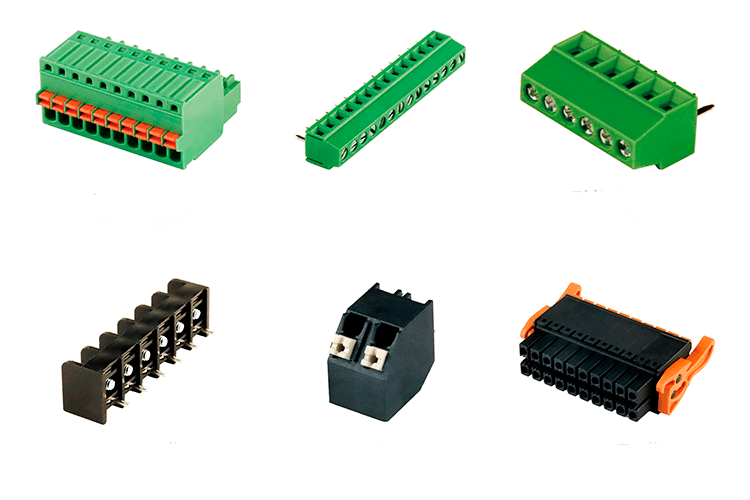Types of Terminal Block Connectors

Terminal block connectors, also known as terminal strips, can be categorized into various types based on their structure, purpose, and installation method. Here are some common types of terminal blocks:
Screw Terminal Blocks: These are the most common type of terminal blocks, which use screws to clamp the wires and create an electrical connection. They are suitable for applications where wires need to be frequently replaced.
Spring Terminal Blocks: This type uses spring force to secure the wires, allowing for quick connection and disconnection without tools. They are ideal for applications that require fast installation and removal.
Barrier Terminal Blocks: These terminal blocks have multiple adjacent connection points, resembling a barrier structure, making them suitable for multi-wire connections. They are commonly used in distribution panels and control boxes.
European-Style Terminal Block: Euroblock typically feature screws and can connect multi-strand wires. They are suitable for industrial control systems and automation equipment.
PCB Terminal Blocks: These terminal blocks are directly soldered onto a printed circuit board (PCB) to connect external wires to circuits on the board.
DIN Rail Terminal Blocks: Designed for mounting on DIN rails, these terminal blocks facilitate standardized installation and management within control cabinets.
Waterproof Terminal Blocks: Specifically designed for outdoor or humid environments, these terminal blocks have excellent sealing properties to prevent moisture and dust ingress.
High Voltage Terminal Blocks: Used for connecting high-voltage lines, these terminal blocks feature high insulation performance and withstand high voltage.
High Current Terminal Blocks: Designed to carry high currents, these terminal blocks typically have a larger contact area and heat dissipation capability.
Modular Terminal Blocks: These terminal blocks allow for the combination of modules with different functions, such as signal terminals and power terminals, providing flexible configuration options.
Each type of terminal block connector has its specific application scenarios and advantages. Choosing the right terminal block connector is crucial to ensuring the reliability of electrical connections and the stability of the system.





